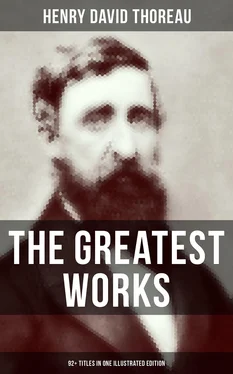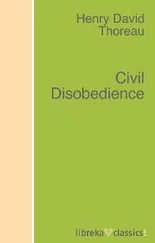"As from the clouds appears the full moon,
All shining, and then again it goes behind the shadowy clouds,
So Hector, at one time appeared among the foremost,
And at another in the rear, commanding; and all with brass
He shone, like to the lightning of aegis-bearing Zeus."
He conveys the least information, even the hour of the day, with such magnificence and vast expense of natural imagery, as if it were a message from the gods.
"While it was dawn, and sacred day was advancing,
For that space the weapons of both flew fast, and the people fell;
But when now the woodcutter was preparing his morning meal,
In the recesses of the mountain, and had wearied his hands
With cutting lofty trees, and satiety came to his mind,
And the desire of sweet food took possession of his thoughts;
Then the Danaans, by their valor, broke the phalanxes,
Shouting to their companions from rank to rank."
When the army of the Trojans passed the night under arms, keeping watch lest the enemy should re-embark under cover of the dark,
"They, thinking great things, upon the neutral ground of war
Sat all the night; and many fires burned for them.
As when in the heavens the stars round the bright moon
Appear beautiful, and the air is without wind;
And all the heights, and the extreme summits,
And the wooded sides of the mountains appear; and from the
heavens an Infinite ether is diffused,
And all the stars are seen, and the shepherd rejoices in his heart;
So between the ships and the streams of Xanthus
Appeared the fires of the Trojans before Ilium.
A thousand fires burned on the plain, and by each
Sat fifty, in the light of the blazing fire;
And horses eating white barley and corn,
Standing by the chariots, awaited fair-throned Aurora."
The "white-armed goddess Juno," sent by the Father of gods and men for Iris and Apollo,
"Went down the Idaean mountains to far Olympus,
As when the mind of a man, who has come over much earth,
Sallies forth, and he reflects with rapid thoughts,
There was I, and there, and remembers many things;
So swiftly the august Juno hastening flew through the air,
And came to high Olympus."
His scenery is always true, and not invented. He does not leap in imagination from Asia to Greece, through mid air,
epeie` ma'la polla` metaxy'
Ourea' te skioe'nta, thala'ssa te eche'essa.
for there are very many
Shady mountains and resounding seas between.
If his messengers repair but to the tent of Achilles, we do not wonder how they got there, but accompany them step by step along the shore of the resounding sea. Nestor's account of the march of the Pylians against the Epeians is extremely lifelike:—
"Then rose up to them sweet-worded Nestor, the shrill orator of the Pylians,
And words sweeter than honey flowed from his tongue."
This time, however, he addresses Patroclus alone: "A certain river, Minyas by name, leaps seaward near to Arene, where we Pylians wait the dawn, both horse and foot. Thence with all haste we sped us on the morrow ere 't was noonday, accoutred for the fight, even to Alpheus's sacred source," &c. We fancy that we hear the subdued murmuring of the Minyas discharging its waters into the main the livelong night, and the hollow sound of the waves breaking on the shore,—until at length we are cheered at the close of a toilsome march by the gurgling fountains of Alpheus.
There are few books which are fit to be remembered in our wisest hours, but the Iliad is brightest in the serenest days, and embodies still all the sunlight that fell on Asia Minor. No modern joy or ecstasy of ours can lower its height or dim its lustre, but there it lies in the east of literature, as it were the earliest and latest production of the mind. The ruins of Egypt oppress and stifle us with their dust, foulness preserved in cassia and pitch, and swathed in linen; the death of that which never lived. But the rays of Greek poetry struggle down to us, and mingle with the sunbeams of the recent day. The statue of Memnon is cast down, but the shaft of the Iliad still meets the sun in his rising.
"Homer is gone; and where is Jove? and where
The rival cities seven? His song outlives
Time, tower, and god,—all that then was, save Heaven."
So too, no doubt, Homer had his Homer, and Orpheus his Orpheus, in the dim antiquity which preceded them. The mythological system of the ancients, and it is still the mythology of the moderns, the poem of mankind, interwoven so wonderfully with their astronomy, and matching in grandeur and harmony the architecture of the heavens themselves, seems to point to a time when a mightier genius inhabited the earth. But, after all, man is the great poet, and not Homer nor Shakespeare; and our language itself, and the common arts of life, are his work. Poetry is so universally true and independent of experience, that it does not need any particular biography to illustrate it, but we refer it sooner or later to some Orpheus or Linus, and after ages to the genius of humanity and the gods themselves.
It would be worth the while to select our reading, for books are the society we keep; to read only the serenely true; never statistics, nor fiction, nor news, nor reports, nor periodicals, but only great poems, and when they failed, read them again, or perchance write more. Instead of other sacrifice, we might offer up our perfect thoughts to the gods daily, in hymns or psalms. For we should be at the helm at least once a day. The whole of the day should not be daytime; there should be one hour, if no more, which the day did not bring forth. Scholars are wont to sell their birthright for a mess of learning. But is it necessary to know what the speculator prints, or the thoughtless study, or the idle read, the literature of the Russians and the Chinese, or even French philosophy and much of German criticism. Read the best books first, or you may not have a chance to read them at all. "There are the worshippers with offerings, and the worshippers with mortifications; and again the worshippers with enthusiastic devotion; so there are those the wisdom of whose reading is their worship, men of subdued passions and severe manners;—This world is not for him who doth not worship; and where, O Arjoon, is there another?" Certainly, we do not need to be soothed and entertained always like children. He who resorts to the easy novel, because he is languid, does no better than if he took a nap. The front aspect of great thoughts can only be enjoyed by those who stand on the side whence they arrive. Books, not which afford us a cowering enjoyment, but in which each thought is of unusual daring; such as an idle man cannot read, and a timid one would not be entertained by, which even make us dangerous to existing institutions,—such call I good books.
All that are printed and bound are not books; they do not necessarily belong to letters, but are oftener to be ranked with the other luxuries and appendages of civilized life. Base wares are palmed off under a thousand disguises. "The way to trade," as a pedler once told me, "is to put it right through ," no matter what it is, anything that is agreed on.
"You grov'ling worldlings, you whose wisdom trades
Where light ne'er shot his golden ray."
By dint of able writing and pen-craft, books are cunningly compiled, and have their run and success even among the learned, as if they were the result of a new man's thinking, and their birth were attended with some natural throes. But in a little while their covers fall off, for no binding will avail, and it appears that they are not Books or Bibles at all. There are new and patented inventions in this shape, purporting to be for the elevation of the race, which many a pure scholar and genius who has learned to read is for a moment deceived by, and finds himself reading a horse-rake, or spinning-jenny, or wooden nutmeg, or oak-leaf cigar, or steam-power press, or kitchen range, perchance, when he was seeking serene and biblical truths.
Читать дальше












